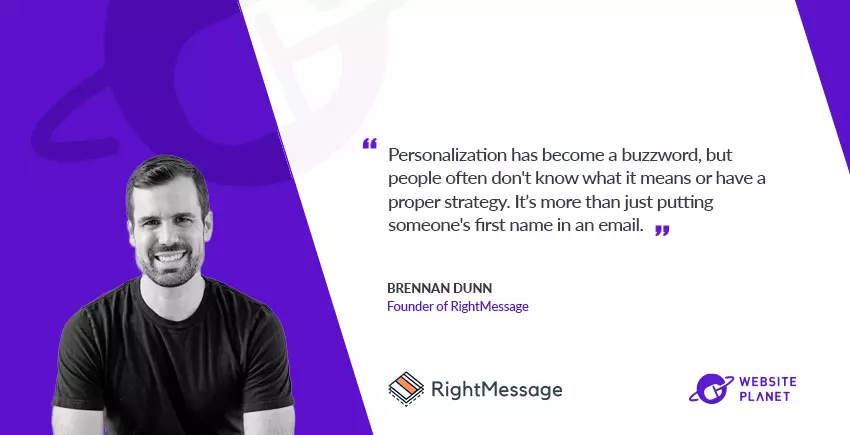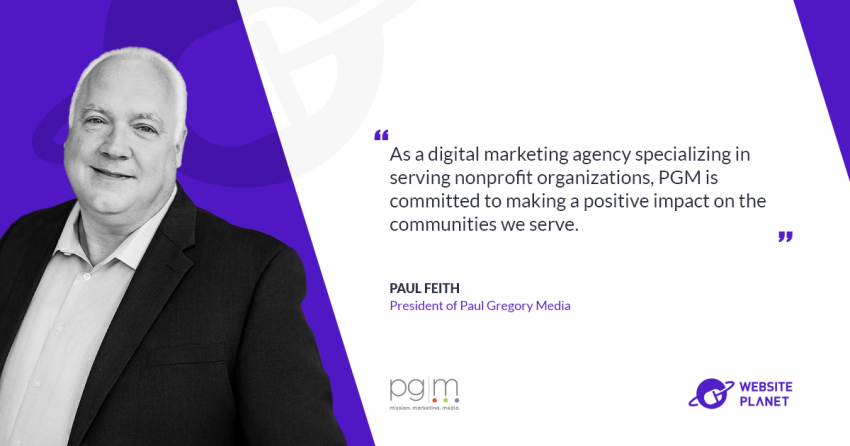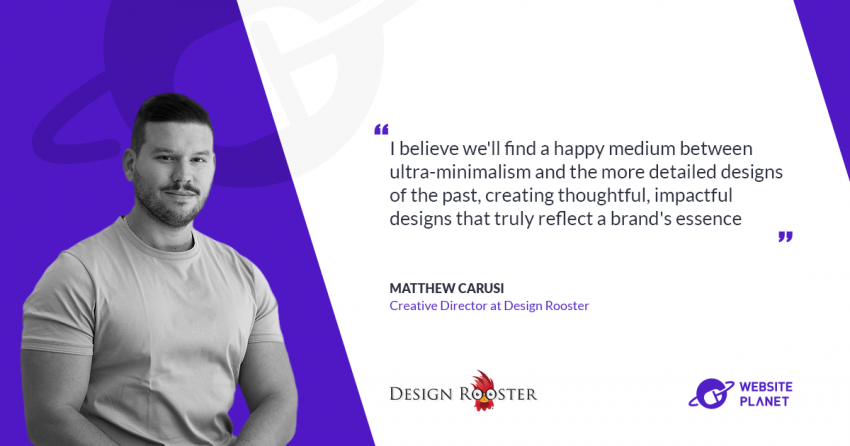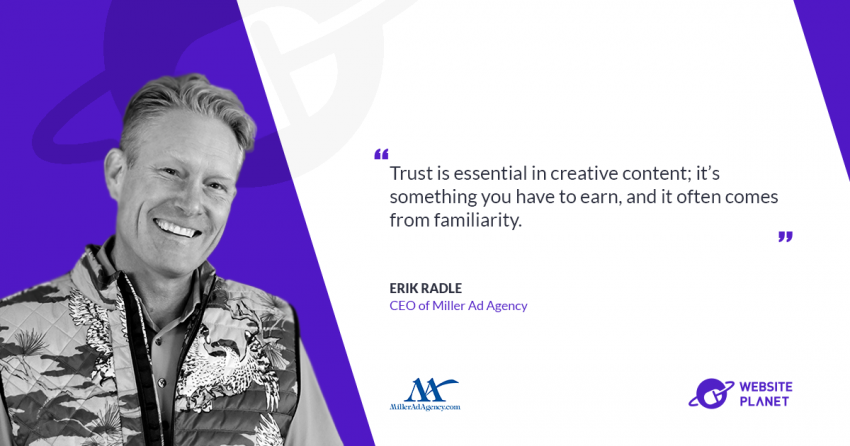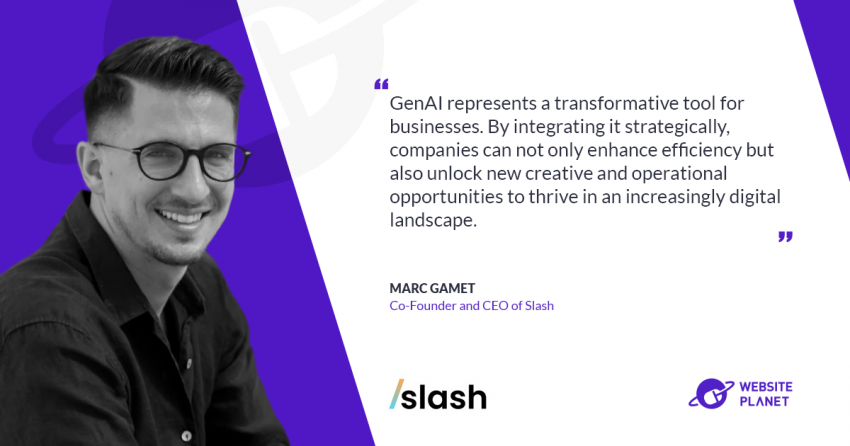What Marketers Need To Learn From SDRs
There’s this big gap between how we sell and how we market. If I get on a sales call, like a Zoom call, and try to convince somebody to use RightMessage, I’m going to take into account who I’m speaking with. I’ll listen to their questions, do a bit of research about them before the call to find out what industry they are in, what they do at that company, and so on. Any good salesperson does this. On the other end of the spectrum, we have online marketing, which includes a lot of different things. Many online businesses build up an email list, using email marketing to deliver messages at scale to their online audience. Usually, these emails bring people back to a website, to a sales page, or a product page, where they’re asked to buy. What we’re trying to do is find a nice middle ground between the two. Our platform helps companies better understand the individual needs and identities of the people in their audience:- What industry are they in?
- What job role do they have?
- What stage is their business at?
- Why did they join your email list?
- What business challenge brought them to you?
- What’s the next goal they have in their company?
”By personalizing our offer pages (using data RightMessage helped collect), we were able to add more than $100k in net new revenue to our last big promotion. ”
Pat Flynn
How Website Personalization Can Boost Conversions By Over 100%
We help people get that data through progressive profiling, surveys, behavioral profiling, and other means. We collect that information, sync it up to someone’s CRM or their email platform, and use it. We also consume that data internally within RightMessage to personalize your website, change call-to-actions and pop-ups, and make it so everyone who gets an email from you or views a webpage on your website sees something a little more specific to them. They’re seeing testimonials from people like them. When that’s done, the impact in terms of increased conversions is often in the double and even triple digits. There’s no black magic around that. It’s just that when someone looks at a sales letter over an email or a webpage describing a product, if it’s more relatable to them, they’re more likely to take action and buy it. We make it so a single webpage can be modified automatically, depending on who’s viewing it, and at infinite scale. In terms of the impact it’s having, companies need to reach a pretty broad audience. Let’s say you run a project management software company. You probably have agencies, landscape companies, law firms, and various other customers. You end up needing to show different case studies across the board and use intentionally generic language to try to cover everyone. Law firms use the word “client”; a landscape company probably uses the word “customer.” So you end up saying things like, “Your clients and your customers can blah, blah, blah,” which dilutes your message.Online Marketers Overcomplicate Website Personalization
Most companies are focused on this one-size-fits-all means of online marketing. It works, companies get sales, but it’s a bit of a shotgun approach where you’re just hoping stuff works. If you can be more laser-focused and specific, like saying, “Oh, you have this struggle, this is the industry you’re in, here’s a company like yours and how the main pain point you have can be solved with our project management software,” it’s more akin to sales. Tools like Optimizely and Visual Website Optimizer can do website personalization, but they expect you to bring along your own segmentation data. They might say, “We can change the headline to be about a certain industry, but you need to let us know that this visitor is in this industry.” So, companies end up running surveys, using tools like Zapier or Make to bring data into other tools, and another tool like Segment to bridge out their CRM data into a tool like Optimizely. You just end up with all these different hacked-together things.An Easier, Better Way To Do Personalization At Scale
💡RightMessage is a single platform that seamlessly integrates in a two-way fashion between your CRM or your email marketing platform and your web platform. There’s no need for third-party tools to pass data to and from. Many companies just don’t have the underlying segmentation data they need to personalize. They might have a large email list but only have first names and email addresses. With that limited info, you can’t do much.
We’re not only a personalization platform, but we’ve built clever embedded serving software, progressive profiling software, behavioral profiling tools, and more into our platform. You can run microservices on your website to get zero-party data, like asking, “What industry are you in?” or “What challenge brought you to our website?”. We can also profile people based on behavior. If they land on an industry-specific landing page from Google, we can assume they’re in that industry. Every future interaction can focus on that industry.
RightMessage is a one-stop shop for making personalization easy. Many of our customers have hacked together custom ways of doing this in the past and come to RightMessage because they don’t want a bunch of brittle systems that our platform does out of the box.
🚀Justin Welsh increased sales for his last launch by about 38%.
That directly added around $650,000 to his launch. That added revenue was attributable to the personalized marketing RightMessage delivered for him.
We have a lot of pro creators who use us, but also regular SMBs and other companies. We have law firms who use us so someone interested in family law only sees content about family law. We have a New Zealand-based property management and construction company using us to change their website based on where someone lives and their experience, like if they are an existing homeowner. All of that contributes to changing their website.
“For marketers ahead of the curve the challenge up to now has not been why to focus on personalization, but how… RightMessage finally removes the marketer’s biggest barrier to personalization — heavy reliance on an engineering team. ”
Claire Suellentrop, Co-founder of Forget The Funnel
How AI Will Impact Personalization In Marketing
Five to ten years from now, doing personalization right will involve leveraging AI copywriting more. Currently, it entails creating different headlines for different industries on your homepage. In the future, tools like RightMessage will use AI to dynamically alter content on the page in real-time automatically. Instead of thinking of conditional copy, AI will rehash content already on your website. However, there are privacy implications. We’ve seen with scandals like Cambridge Analytica during the 2016 presidential campaign how personalization can be misused. The future will likely balance privacy with more effective online promotion and marketing, moving away from one-size-fits-all strategies. To stay up-to-date and adapt to these changes, it’s important to understand that personalization is beneficial. Making a website more individually relevant to each visitor leads to higher conversions. We have clear, controlled, split-tested data showing that personalized marketing increases conversions. Justin Welsh is a recent case study. His sales increased by 38%, adding hundreds of thousands of dollars in revenue, with maybe 10 to 20 hours of setup. For him, it was a no-brainer. We’ll be pushing out more data, showing before and afters, and making it clear how companies are succeeding with personalization.Personalization has become a buzzword, but people often don’t know what it means or have a proper strategy. It’s more than just putting someone’s first name in an email.
